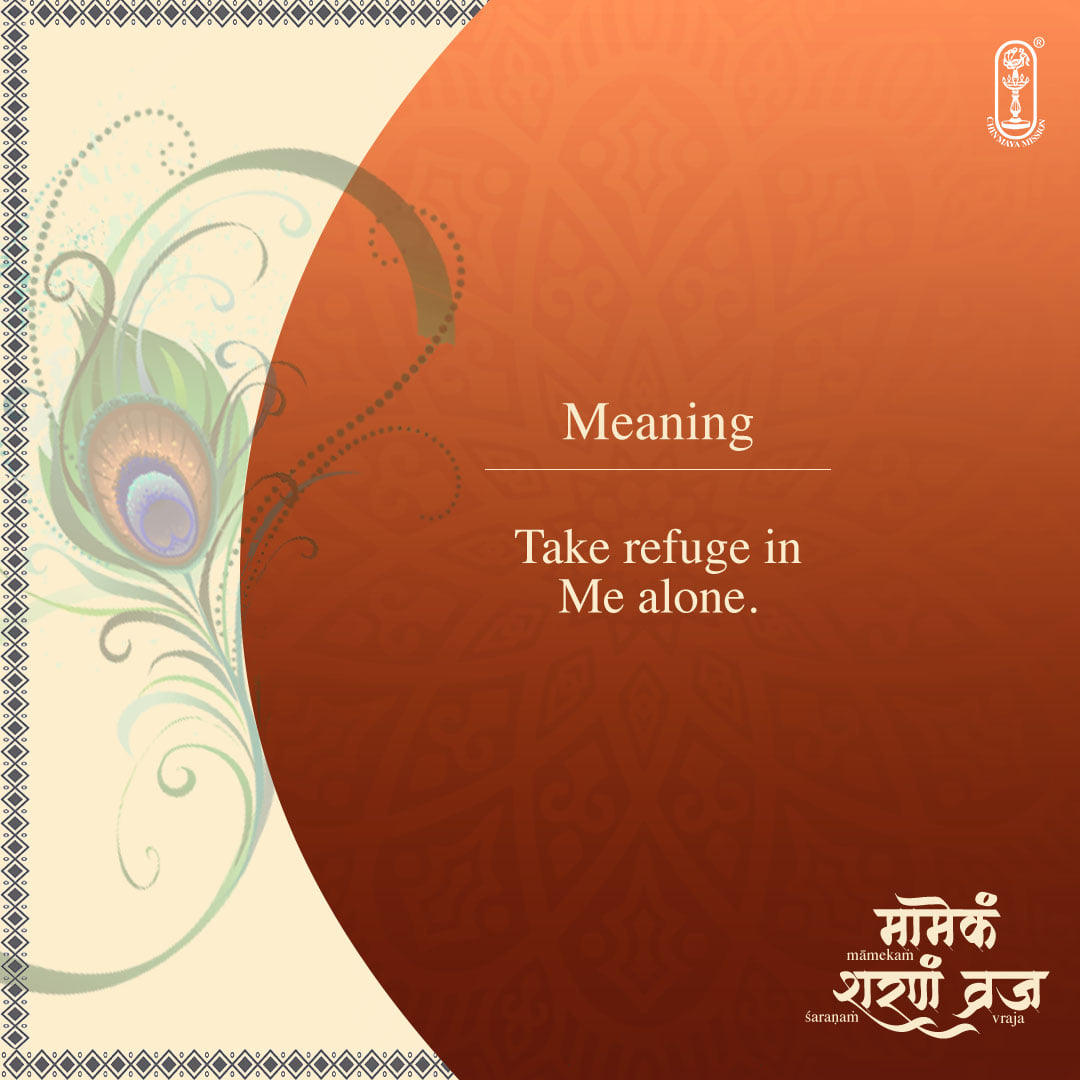Philosophy of the Bhagavadgita : 15.4 - Swami Krishnananda.
================================================
=============================================
Sunday, January 02, 2021. 8:00. PM.
The Philosophy of the Bhagavadgita-15-4
Chapter-15 : The Way and the Goal -4.
==============================================
“I am the Knower in all fields, and not merely in one field.” The Atman in my body is not confined to this body only; it is the Atman uniformly present in all other bodies, also. And, so, there is a necessity to understand the distinction between the Knower of the Field, the Field, the nature of Knowledge, and the Goal of Knowledge. These are the themes of the Thirteenth Chapter. The subject who is the individual percipient, or the conscious observer of things, is the conglomerate psychophysical complex. This body constituted of the five gross elements of earth, water, fire, air and ether, and animated by the mind inside, working with the instrument of the intellect, filled with desires, is the subject proper.
Here is a reference made to the Samkhya cosmological principles when, by suggestion, the principles of ahamkara, mahat (buddhi) and the avyakta (prakriti) are indicated. With these and the five elements, the cosmic structure is complete. These very same principles, along with the ten sense organs and the mind, constitute the individual. This individual complex, which is physical as well as psychological at the same time, mind and body inseparably related, is the individual percipient, the empirical knower. A knower is one who has knowledge; and what is correct knowledge, or right knowledge, or proper knowledge, and what is the opposite of it, is also mentioned further on.
In this categorisation of the various components of correct knowledge, some sort of system or order appears to have been followed. In the beginning, virtues such as humility, unpretentiousness, etc., are mentioned, which are supposed to be the endowments of the student, a brahmacharin, a disciple working and studying under a Guru. For, together with this requirement of ethical qualities, we are told that one should be endowed with the requisites of servicefulness to the Guru, the Master, the Teacher. Purity of thought, purity of word and purity of deed is again emphasised. Detachment, at the same time, is pointed out once again as an indispensable. Gradual withdrawal from external entanglements of every kind, culminating in the perception of the transiency of all things, the perishability of all objects, devotion to God, and the recognition of the existence of an eternal Reality behind all phenomena—all this is supposed to be knowledge. Perhaps, there is some subtle reference made to the various stages, or the Ashramas—Brahmacharya, Grihastha, Vanaprastha and Sannyasa—impliedly, in the suggestive verses.
Every character, conduct, behaviour, action and outlook that is going to tend towards the acceptance of God's ultimate supremacy, perfection and absoluteness is to be considered as knowledge, and everything else is ignorance. To move towards God, and to feel an aspiration for God-realisation is knowledge, and ultimate or final knowledge is the conviction that God alone is, and nothing else ever can be. And if our understanding varies from this conclusion, we are in a state of ignorance. Here is the substance, the character of right knowledge.
To be continued .....
==============================================









Comments
Post a Comment